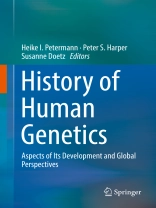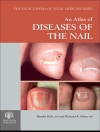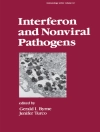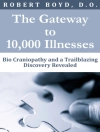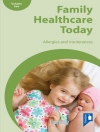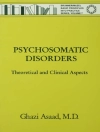Written by 30 authors from all over the world, this book provides a unique overview of exciting discoveries and surprising developments in human genetics over the last 50 years.
The individual contributions, based on seven international workshops on the history of human genetics, cover a diverse range of topics, including the early years of the discipline, gene mapping and diagnostics. Further, they discuss the status quo of human genetics in different countries and highlight the value of genetic counseling as an important subfield of medical genetics.
Inhoudsopgave
Introduction.- Part I: Workshops on the History of Human Genetics.- The International Workshops on Genetics, Medicine and History: An Overview, 2003–2015.- Part II: Beginning of Human Genetics.- Ancestral Concepts of Human Genetics and Molecular Medicine in Epicurean Philosophy.- Bateson and the Doctors: The Introduction of Mendelian Genetics to the British Medical Community 1900–1910.- Part III: Genetics and Medicine.- Pedigrees and Prejudices: Pre-WWII Inherited Disease Classification at the US Eugenics Record Office.- Aldred Scott Warthin’s Family ‘G’: The American Plot Against Cancer and Heredity (1895–1940).- Genetic Discrimination in the Doctoring of Cancer and Alcoholism.- The Genomization of Biology: Counterbalancing Radical Reductionism.- A Brief History of Uncertainty in Medical Genetics and Genomics.- Part IV: Countries.- “Nature’s Laboratories of Human Genetics”: Alpine Isolates, Hereditary Diseases and Medical Genetic Fieldwork, 1920–1970.- Some Thoughts on Genetics and Politics. The Historical Misrepresentation of Scandinavian Eugenics and Sterilization.- Changing the Point of View: The History of Human Genetics as an Applied Science in the Federal Republic of Germany, 1945–1975.- Herbert Bach (1926–1996): One of the Pioneers of Human Genetics in East Germany (GDR).- Concise History of Prenatal Diagnostic Service in Russia.- Foundation of the International Federation of Human Genetic Societies: The Catalyst.- Part V: Gene Mapping.- The First Human Genetic Map 1936.- Glasgow Contributions to Human Gene Mapping.- Human Gene Mapping: The Mass Media Iconography of the Human Genome Project in the Most Popular Greek Newspapers.- Part VI: Narrated History.- National Human Genome Research Institute History of Genomics Oral History Program: An Example of “Triangulation”.- Narrating Genes: How Patients with Chronic Inflammatory Bowel Diseases Interpret an Emerging Disease Aetiology and How We Can Make Sense Out of It by Developing a Historically and Sociologically Informed Framework.- Part VII: Genetic Counselling.- The Establishment of Genetic Counselling in Sweden: 1940–1980.- Counselling, Risk and Prevention in Human Genetic Early Diagnosis in the Federal Republic of Germany.- “The Happiness of the Individual Is of Primary Importance”:Genetic Counselling in the GDR.- Remarks on the History of Genetic Counselling in Czechoslovakia, 1945–1990.- The Establishment of Human Genetic Counselling in Austria in the 1970s in Between the Establishment of Human Genetics and the Eugenic Indication of Abortion.- Genetic Counselling in Belgium: The Centre for Human Genetics at the University of Leuven, 1960–1990.- Genetic Counselling for Mediterranean Anaemia in Post-war Greece.- Karyotyping and the Emergence of Genetic Counselling in Mexico in the 1960s.- Newborn Screening on the Cusp of Genetic Screening: From Solidarity in Public Health to Personal Counselling.- Feminist Criticism of Genetic Counselling in the Second Half of the Twentieth Century.- The Evolving Concept of Non-directiveness in Genetic Counselling.- A Comparative and Social History of Genetic Counselling?.
Over de auteur
Heike I. Petermann studied history and German literature at the Friedrich Alexander University in Erlangen. Her two main fields of interests are the history of anaesthesiology and the history human genetics. Since 2000 she has been secretary of the DGAI’s Arbeitskreis für Geschichte der Anästhesie. She was also member of editorial office of 55 years German Society of Anaesthesiology and Intensive Care Medicine. Tradition and Innovation. In 2011 she started her own research project on the history of human genetics, funded by the DFG. She has also been involved in organising international conferences.
Peter S. Harper was born in Barnstaple, UK, and was educated at Oxford University, with medical training in London. After clinical posts in neurology and paediatrics he entered the field of medical genetics and worked first in Liverpool with Cyril Clarke and then as research fellow with Victor Mc Kusick at Johns Hopkins Hospital, Baltimore. After completing his doctoral thesis, in 1971 he founded and developed a medical genetics institute at the School of Medicine in Cardiff, Wales, where he continued his research on myotonic dystrophy, together with research on Huntington’s disease and other neurogenetic disorders.His work has made a major contribution to our understanding of these and other disorders; he also developed a comprehensive medical genetics service for Wales. His many publications include Practical Genetic Counselling, which is now in its 7th edition and has been translated into numerous languages.In the past 15 years he has focused on documenting and preserving the history of human and medical genetics, founding the “Genetics and Medicine Historical Network” and publishing a number of books with a historical theme, including A Short History of Medical Genetics(2008).
Susanne Doetz studied medicine at the Humboldt Universität/Charité-Universitätsmedizin Berlin. She is a visiting scientist at the Institute of History of Medicineand Ethics in Medicine at the Charité in Berlin. Her research interests include the history of medicine during the time of National Socialism, and the history of eugenics and human genetics. Her current research project is titled “Establishing genetic counselling in the GDR in the area of conflict between science, politics and the public”, and is supported by the DFG (German Research Foundation).
